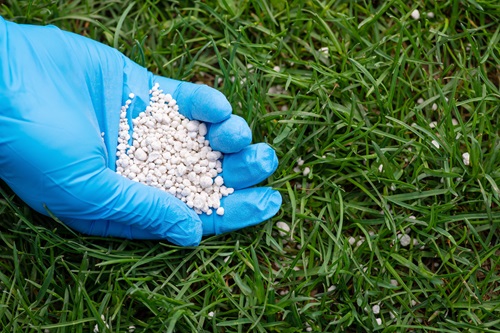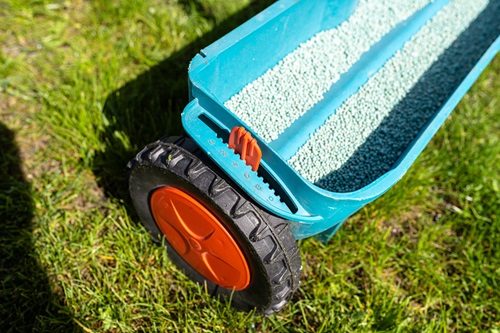
Applying fertilizer is a key step in maintaining a lush, healthy lawn. However, knowing the right time to apply it and understanding how to do it properly can make all the difference. While many homeowners jump into fertilizing their lawns, timing and method are crucial to ensure your lawn gets the most benefit. Let’s delve into the best lawn care practices for fertilizing your lawn and why these steps are so important.
Why Timing Matters in Lawn Fertilization
When it comes to lawn care, timing plays a critical role, particularly with fertilizer application. You might think that applying fertilizer as soon as spring arrives is ideal, but doing so can actually lead to less effective results. For example, applying fertilizer too early might encourage the grass to focus on leaf growth before the roots have fully developed. As a result, your lawn could become more vulnerable to drought and disease later in the season.
Instead, waiting until late spring, when the grass begins to grow more vigorously, allows the fertilizer to support both the roots and the blades of grass. This timing helps your lawn develop a strong foundation, which is essential for withstanding the hot summer months. Moreover, starting your fertilization at the right time sets your lawn up for success throughout the growing season.
Understanding the Debate on Fertilizer Use
The decision to use fertilizer on your lawn often sparks debate, especially when considering environmental impacts. Some homeowners prefer organic gardening practices, avoiding chemical fertilizers to minimize the risk of harmful runoff. This concern is valid, as fertilizers containing nitrogen and phosphorus can find their way into rivers, streams, and groundwater, potentially causing environmental issues.
On the other hand, those who choose conventional fertilizers do so for the immediate and visible benefits they provide. Nevertheless, it’s important to balance the desire for a beautiful lawn with the need to protect the environment. By understanding the potential impacts and adjusting your approach to lawn care in Conway SC, you can maintain a healthy lawn while minimizing any negative effects on the surrounding ecosystem.
Lawn Care Tips for Safe and Effective Fertilizer Application
Whether you opt for organic or conventional fertilizers, the way you apply them matters just as much as the timing. Many fertilizer manufacturers recommend doses that might be more than your lawn actually needs. Therefore, it’s often a good idea to start with a lighter application—using about half of the suggested amount.
As a result, you can monitor how your lawn responds and make adjustments if necessary. For example, a healthy lawn should have a bright, light green color. If your grass turns a deep, almost blackish green, it could indicate that too much nitrogen-based fertilizer has been used. This not only wastes fertilizer but also increases the risk of runoff into local water systems.
Additionally, over-fertilization can lead to rapid growth that your lawn may not be able to sustain, causing long-term damage. By applying the right amount of fertilizer in Conway SC, you can ensure that your lawn stays healthy and vibrant without overdoing it.
Planning Your Fertilization Schedule
Creating a fertilization schedule that aligns with your lawn’s needs is crucial. For those who prefer organic lawn care, one well-timed application in early fall can help establish strong roots before winter. During spring and summer, relying on the nitrogen from mulched grass clippings can provide sufficient nutrients without additional fertilizer.
Conversely, if you use conventional fertilizers, consider two to three light applications during the growing season in Conway SC. Applying fertilizer in late spring, followed by a mid-summer boost if needed, and finishing with an early fall application can help maintain your lawn’s health throughout the year. This staggered approach ensures that your lawn receives nutrients when it needs them most, promoting consistent growth.
Timing Fertilization with Weather Conditions
The weather plays a significant role in how effective your fertilizer application will be. Ideally, you should plan to fertilize your lawn just before a light rainfall. This not only helps the fertilizer soak into the soil but also minimizes the risk of runoff.
However, avoid applying fertilizer before a heavy storm, as this could wash away the nutrients before they have a chance to benefit your lawn. If rain isn’t in the forecast, be sure to water your lawn lightly after fertilizing to help the nutrients penetrate the soil. By timing your application with the weather, you can maximize the effectiveness of your fertilization efforts.
Getting the timing and method right when applying fertilizer is essential for maintaining a healthy, beautiful lawn. Whether you choose organic or conventional methods, understanding the best practices for fertilization will help you achieve the lush, green lawn you desire while also being mindful of the environment.
Looking to enhance your lawn care routine? Reach out to Conner’s Lawn Care Service today to get expert advice and services tailored to your lawn’s specific needs.
Conner’s Lawn Care Service
Myrtle Beach, SC
843-504-4901
http://connerslawncare.com/

